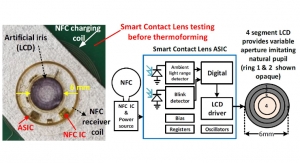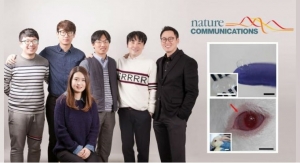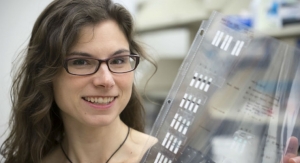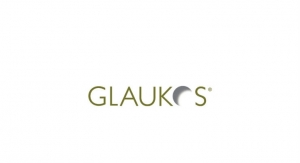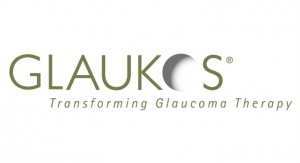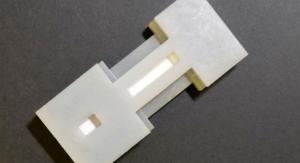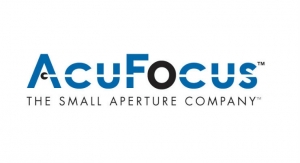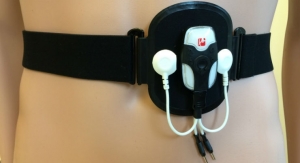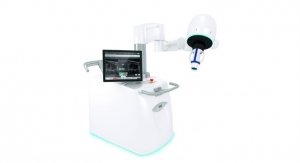Videos
Contact Lenses & Glasses to Treat Glaucoma, Prevent Blindness
Contact Lenses & Glasses to Treat Glaucoma, Prevent Blindness
Personalized therapy could treat and prevent elevated intra-ocular pressure in patients diagnosed with glaucoma.
By Purdue University06.02.17
A Purdue-affiliated startup, Bionode LLC, is developing a wearable neuro-modulation device that could be used as a non-invasive, personalized therapy to treat and prevent elevated intra-ocular pressure in patients diagnosed with glaucoma.
The technology was developed in Purdue’s Center for Implantable Devices by Pedro Irazoqui, professor of electrical and computer engineering and biomedical engineering and lead at the center. Irazoqui serves as chief technology officer of Bionode. The company was co-founded by Irazoqui and Murray I. Firestone, CEO of Bionode.
“Glaucoma is the second leading cause of blindness in the world behind cataracts. Intraocular pressure is caused when the eye either produces too much fluid into the aqueous humor or the eye does not drain properly. The pressure then goes up. Over time, that pressure damages the optic nerve and ultimately results in blindness,” said Firestone. “Current treatments for glaucoma suffer serious limitations concerning patient compliance, side effects, and efficacy. There is need for a non-invasive, effective treatment for glaucoma that solves these issues.”
Bionode’s technology utilizes an off-the-shelf contact lens and a pair of glasses.
“All we do to the contact lens is add a single trace of gold. That trace of gold receives an electromagnetic field that we transmit from a specially equipped pair of glasses to convert the field into a current. The current is then delivered to a very specific part of the eye’s anatomy to achieve the desired therapy,” Irazoqui said. “Our device can electrically stimulate the muscles around Schlemm's canal, the structure where fluid leaves the eye, to decrease the impedance to fluid flow and, thus, decrease pressure. There’s no surgery, it’s not invasive, it’s just a contact lens that you wear with a pair of glasses and it takes about five minutes to work and has no known side effects.”
Irazoqui said the Bionode platform overcomes the limitations of existing treatments.
“Current treatments for glaucoma include eye drops which have side effects and low patient compliance and they eventually stop working. There is the option of laser eye surgery which you can do a maximum of a couple times, and beyond that there is a blood procedure, which is an open wound in the eye that leaks liquid whenever pressure goes up, this has terrible risks for infection. Additionally, all these methods take about three months to work,” he said. “Most patients who opt for these solutions have visual loss within about 10 to 15 years and by 15 to 20 years go blind. The Bionode platform could be the first line of defense for Glaucoma patients.”
Bionode is working to conduct a clinical trial of 100 patients to demonstrate the durability and effectiveness of its platform.
“Currently we have a working prototype and we are seeking $1.5 million in funding to conduct a full human clinical trial. We have partnered with a clinician who owns two ophthalmology institutes, one in Madrid and one in Barcelona, Spain. He is an internationally renowned ophthalmologist,” Irazoqui said. “Our goal is to complete that large clinical trial, apply for CE Mark approval, and file for a FDA de Novo approval in the United States.”
Firestone added that in the future the company may also look into the Bionode platforms’ usefulness in post-traumatic stress disorder, urinary incontinence, gastric disorders and more.
Technology used by Bionode has been licensed through the Purdue Research Foundation Office of Technology Commercialization. The company is a member of the Purdue Startup Class of 2017.
Irazoqui credited the Purdue Foundry, an entrepreneurship and commercialization accelerator in Discovery Park’s Burton D. Morgan Center for Entrepreneurship.
“At Purdue there is a whole collection of people who are very much on your side in getting this process done. They’ve done a wonderful job of creating an ecosystem for a Purdue faculty member with a good technology to get from laboratory bench top to an actual company and in front of investors,” Irazoqui said. “There is no way this company would have happened without the Purdue ecosystem, it’s very much a product of this environment.”
Bionode received a $20,000 First-Tier Black Award from the Elevate Purdue Foundry Fund and was recently named a Gold Award.
Related Searches:


